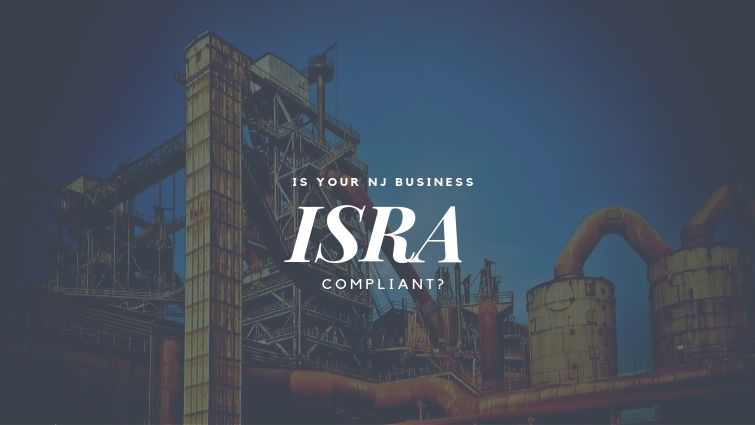Choosing the right partner to meet your ISRA obligations

For nearly 40 years, New Jersey has relied on a set of rules known as the Industrial Site Recovery Act (ISRA) to ensure that industrial properties with potential contaminant exposure are safely transferred or closed. The New Jersey Department of Environmental Protection (NJDEP) requires any qualifying industrial property to follow ISRA regulations.
Anyone involved with commercial or industrial sites should pay close attention to what ISRA requires of all parties involved and the consequences involved in deviating from ISRA obligations. A qualified legal and technical team in the sale or abandonment of potentially contaminated sites can help clarify any ISRA-related concerns and avoid penalties.
How ISRA came about – and how it works today
The New Jersey state legislature initially passed ISRA in 1983 – though it has since been amended many times – in hopes of reducing the costs associated with abandoned contaminated sites. ISRA requires that all industrial sites being sold or shut down need to undergo a thorough inspection, after which a detailed cleanup plan needs to be implemented, if applicable. Traditionally, the responsibility for this cleanup lies with the property’s owner or seller, though deals can be made to transfer this responsibility to the buyer or share it between the two parties.
Regardless of where the responsibility lies, ISRA compliance is mandatory for applicable parties. Any parties that are required to adhere to ISRA but fail to do so risk fines as large as $25,000 for every day during which compliance is ignored. These fines can be taken directly from businesses or their personnel.
How property owners can comply with ISRA
Any property that requires ISRA compliance must be remediated before transfer or closure. To begin the remediation process, the responsible party must file ISRA application forms with the NJDEP, including a General Information Notice (GIN). Once a GIN is filed, the responsible party must contact a Licensed Site Remediation Professional (LSRP) to conduct a Preliminary Assessment (PA) to determine potential Areas of Concern (AOCs). In some cases, the LSRP must also conduct a Site Investigation (SI) to identify contaminants present at volumes higher than existing remediation standards.
Should an SI be necessary, any contamination that the report discovers must be further analyzed via an LSRP-conducted Remedial Investigation (RI). This investigation will aim to pinpoint what contaminants are present and to what extent. Following the RI, the LSRP will propose a Remedial Action Workplan (RAW) that outlines the steps needed full remediation. Remediation will end with the LSRP filing a Response Action Outcome (RAO) to the NJDEP.
If the property in question is being transferred, the seller must obtain an LSRP-certified RAO before the transfer occurs. However, if a Remediation Certification can be executed between the seller and buyer, then the transaction can be completed before full ISRA compliance.
A limited number of exemptions to ISRA compliance exist. If an industrial site is found to contain a small volume of contaminants, the site owner can apply for a quantity exemption. Sites that are already undergoing other remediations or that only include underground storage tanks and their discharge as AOCs can also apply for exemptions. In both cases, site owners must file an ISRA Alternate Compliance Option form.
What to look for in an environmental remediation partner
A reliable environmental remediation partner is crucial for proper ISRA compliance. These partners are ideal LSRP candidates due to their years of experience ensuring that property owners and buyers remediate industrial sites in accordance with ISRA. They work closely with legal representatives to insure compliance with ISRA rules and regulations.
The ideal environmental remediation partner is transparent regarding all portions of the remediation process. Constant, clear communication is vital when dealing with regulations as complex as ISRA to ensure that no step is inadvertently left out.
Accuracy in all cost estimates is also vital, as remediation costs can add up rapidly. A proper environmental remediation partner will anticipate all remediation costs at the outset of the planning phase and keep site owners updated as their investigative and decontamination work continues. Some environmental remediation partners may even offer guaranteed fixed-price remediation, such as EWMA’s SECUR-IT® program, which outlines and guarantees all ISRA-related costs.
EWMA is the premier leader in environmental consultation, with remediation services including in-house LSRP, remediation system design, operation and maintenance, and site characterization and assessment. EWMA has offered these services to countless businesses requiring ISRA compliance and delivered results with transparency, within budget, and on schedule. Contact EWMA to work with the best environmental remediation partner for your ISRA obligations.
